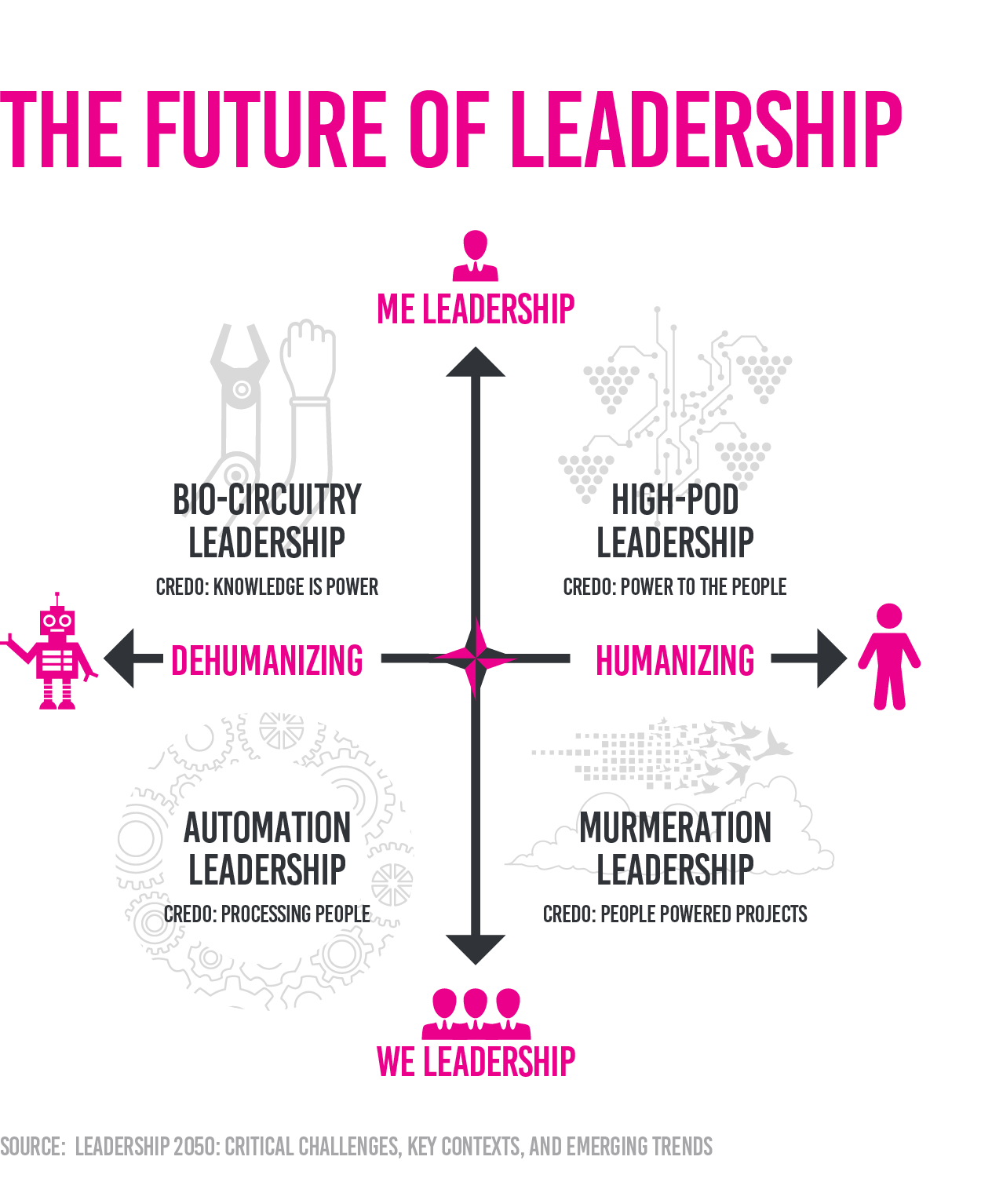![]() 5 minute read
5 minute read
According to Branson, technological innovation along with blockchain are capable of establishing the desired future of egalitarian decision-making and leadership. Is the role of technology positive or leading to utopic obsessively controlled future?
Revolution in
leadership style
Today, Virgin Empire counts over 60 business units and caters to the needs of 60 million customers around the globe. It has $24bn in revenue per annum and high international brand recognition with 24 million views on the social media. Richard Branson’s unique attitude towards leadership, management, and decision-making created a new approach to business approach. He revolutionized the concepts of leadership and led his Virgin Empire with the motto “rules are meant to be broken”. Listen, learn, and laugh are the major values that helped him cultivate an atmosphere of innovation and future-orientation in the company. According to Branson,”having a personality of caring about people is important. You can’t be a good leader unless you generally like people. That is how you bring out the best of them.” In Virgin Empire, employees are viewed as essential assets and drivers of growth, expansion, and innovation.Giving employees the freedom to identify own working hours and take responsibility creates self-driven organization towards uniting mission. Flexibility allows Virgin employees to take full potential out of working shifts and maintain sufficient work-life balance. This results in empowerment, exceptional productivity and idea-oriented mindset and thriving business environment. Due to the innovative approach and power of delegation, the corporation covers a diversity of businesses such as Virgin Atlantic and American Airlines and product lines such as Virgin Cola.
Virgin’s transformational leadership concentrates on empowering its employees and investing in their skills and development. The egalitarian stress-free atmosphere in the company triggers innovation and continuous idea-sharing. Analogous leadership initiatives are seen among other leaders of global enterprises. For instance, Elon Musk gives priority to perseverance, inspiring people with his vision and bringing their powers and skills together for a big idea. At the same time, Bill Gates, the head of Microsoft, combines elements of participatory leadership style and risk-taking initiatives instead of using autocratic management rules. As illustrated the secret ingredient of Branson’s, Musk’s, and Gates’ companies is in viewing employees as the key assets of the company and trusting in their competence and skills.
Is collective leadership
a new pathway to success?
Inspired by popular global leaders, many companies started practicing collective leadership. Collaboration and responsibility-sharing are the crucial values whereas leadership is ensured at all levels. Uncertainty becomes a new trigger of innovation, and dynamic nature and business complexity require paying more attention to internal communication. Linux was created based on these principles and grew into open-source software that united people. Open-source innovation became an integral part of the entrepreneurship. There are examples of IT players successfully empracing collective leadership like Hadoop, projected to have half of the global $100bn big data market by 2020; Cloudera with $100m revenue per annum in 2015. Zapier with $20 million annualized run rate took the shared-responsibility model as own business developing instruments to connect one business software to another without having any offices at all.
Leading the business
with robo-employees
The Institute of Leadership [&] Management highlights that Digitalization 2.0 is a reality. By 2050, leaders will have to find a sufficient balance between human/robot capital and design novel approach to ensure higher integrity and efficiency. This provokes the development of leadership styles based on two axes “me/we” focus and humanizing/dehumanizing environment. Bio-circuitry leadership emphasizes finding a balance between humans and robots, where knowledge becomes a key driver and requires “real” employees adapt to the fast-paced environment. In another possible option, automation leadership, the nature of humans is diminished, and a leader views them as robot-like instruments that can be organized to increase efficiency. This will lead to overwhelming control of all actions and hyper-micromanagement like in utopian literature and movies.

The alternative scenarios imply the domination of “we”-decision-making and the increased role of humans in innovation management. High-pod leadership aims at enhancing efficiency but takes a different approach to the role of technology. Re-humanization of the world, where humanity and “we” are principle values, will create a more comforting working environment. Also, combining diverse specialists in mini-idea incubators will foster innovation and increase the quality of life. Murmuration leadership style diminishes the lines between robots and humans and empowers them to create unlimited human-based networks. Transparency, self-management, and aspiration will cause drastic changes and Internet of Everything will evolve into Humanity of Everything. Traditional and formal hierarchies will vanish, and collective decision-making and mindset will replace the existent understanding of the leadership and inequality in power. No leadership is one of the future scenarios, and the organizations themselves will disappear passing the control to the hands of transparency and uncertainty of Humanity of Everything.
According to the vision of Virgin, investing in people is the only way to keep up with market changes. As Richard Branson forecastes that rise of blockchain will “encourage the idea-popping” and help humanity flourish in the technical environment. Blockchain as decentralized decision-making mechanism already offers smart contracts and ensures distribution of tasks. This technology is the idea-gathering instrument and the future of collective leadership. Re-humanization and transparency are the upcoming trends that will make Humanity of Everything a reality and help avoid utopic future of hyper-micro-management.




